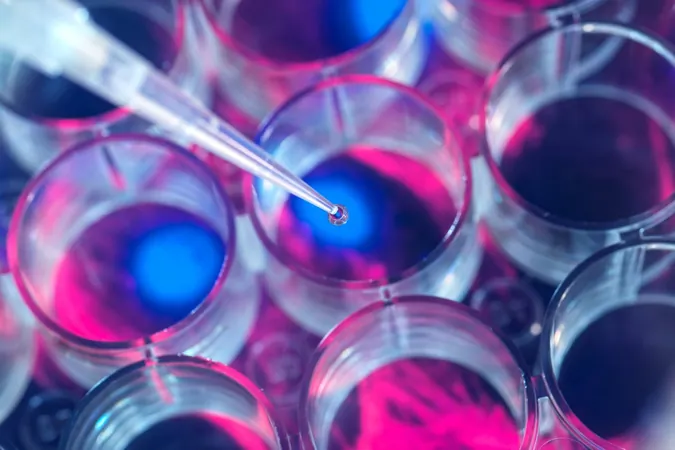
Revolutionary Breakthrough: Woman's Type 1 Diabetes May Be Cured with Stem Cell Therapy!
2024-10-02
Introduction
In an extraordinary medical advancement, scientists in China have unveiled remarkable early-stage clinical trial results that hint at a potential cure for type 1 diabetes—an autoimmune condition affecting around two million Americans. This groundbreaking research suggests that a patient’s own stem cells could be transformed into a reliable supply of insulin-producing pancreatic cells, offering hope for those living with this chronic disease.
The Need for a Permanent Treatment
Once deemed a death sentence, type 1 diabetes has seen great strides in management thanks to synthetic insulin. However, patients still face a shorter life expectancy compared to the general population due to the complications associated with the disease. With an urgent need for a permanent treatment, researchers have been exploring various avenues, and this latest study might provide a glimpse into a future where type 1 diabetes could be significantly mitigated or even cured.
Clinical Trial Process
The phase I trial involved a group of dedicated researchers and three participants diagnosed with type 1 diabetes. The process began with the removal of cells from the patients, which were then converted into pluripotent stem cells—versatile building blocks capable of developing into several cell types. These cells were chemically induced to mature into insulin-producing pancreatic islets, which are typically destroyed by the immune system in those with type 1 diabetes. The newly formed islets were injected into the patients' abdomens, chosen for ease of monitoring and the potential for straightforward removal if complications arose.
Groundbreaking Results
In a groundbreaking report published in the journal Cell, the initial results from the trial showed that one patient—a 25-year-old woman—began producing sufficient insulin to discontinue her insulin injections just 75 days following the procedure. By the fourth month, her blood glucose levels were strikingly similar to those of a healthy individual, and after a year, she continued to produce insulin without any transplant-related complications.
Cautionary Notes
The research team expressed optimism, stating, 'Promising results from this patient suggest that further clinical studies assessing islet transplantation derived from chemically induced pluripotent stem cells in type 1 diabetes are warranted.' However, it’s important to note that these results are at a preliminary stage, and phase I trials are primarily focused on assessing safety rather than confirming efficacy.
Future Implications
The landscape of stem cell research is fraught with both hope and caution; previous studies have yielded high expectations only to fall short in later trials. Additionally, the patient in this study was already on immune-suppressing medication due to a prior liver transplant, raising questions about whether her immune system might attack the new islets in the future or if this breakthrough could be replicated in individuals with different medical backgrounds.
Conclusion
Nevertheless, if these initial findings can be reproduced with the other two participants and in larger clinical trials, this pioneering treatment might just pave the way for a functional cure to a complex, life-altering condition. The scientific community and patients worldwide are holding their breath in anticipation of what comes next. Stay tuned as we monitor the developments in this truly revolutionary research!




 Brasil (PT)
Brasil (PT)
 Canada (EN)
Canada (EN)
 Chile (ES)
Chile (ES)
 España (ES)
España (ES)
 France (FR)
France (FR)
 Hong Kong (EN)
Hong Kong (EN)
 Italia (IT)
Italia (IT)
 日本 (JA)
日本 (JA)
 Magyarország (HU)
Magyarország (HU)
 Norge (NO)
Norge (NO)
 Polska (PL)
Polska (PL)
 Schweiz (DE)
Schweiz (DE)
 Singapore (EN)
Singapore (EN)
 Sverige (SV)
Sverige (SV)
 Suomi (FI)
Suomi (FI)
 Türkiye (TR)
Türkiye (TR)